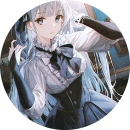Question 1. The young girl has great experience in nursing. She has worked as a hospital volunteer for years.
A. Before she worked as a hospital volunteer for years, the young girl has great experience in nursing.
B. Much as she has worked as a hospital volunteer for years, the young girl has great experience in nursing.
C. Having worked as a hospital volunteer for years, the young girl has great experience in nursing.
D. With great experience in nursing, the young girl has worked as a hospital volunteer for years.
Question 2. Peter told us about his leaving the school. He did it on his arrival at the meeting.
A. Only after his leaving the school did Peter inform us of his arrival at the meeting.
B. Not until Peter told us that he would leave the school did he arrive at the meeting.
C. Hardly had Peter informed us about his leaving the school when he arrived at the meeting.
D. No sooner had Peter arrived at the meeting than he told us about his leaving the school.
Question 3. He was successful because he was determined to pursue personal goals. He was not talented.
A. In addition to his determination, his talent ensured his success in pursuing his goals.
B. His determination to pursue personal goals made him successful and talented.
C. It was his determination to pursue personal goals, not talent, that contributed to his success.
D. His success lay in his natural ability, not in his determination to pursue personal goals.
Question 4. There was a serious flood. All local pupils couldn’t go to school on that day.
A. The serious flood prevented all local pupils not go to school on that day.
B. The serious flood hindered all local pupils from going to school on that day.
C. The serious flood made all pupils from not going to school on that day.
D. The serious flood caused all local pupils not go to school on that day.
Question 5. He did not remember the meeting. He went out for a coffee with his friends then.
A. Not remember the meeting, he went out for a coffee with his friends.
B. Not to remember the meeting, he went out for a coffee with his friends.
C. Not remembered the meeting, he went out for a coffee with his friends.
D. Not remembering the meeting, he went out for a coffee with his friends.
Question 6. They left their home early. They didn’t want to miss the first train.
A. They left their home early so as to not miss the first train.
B. They left their home early for fear that they wouldn’t miss the first train.
C. They left their home early so as not to miss the first train.
D. They left their home early in order that not to miss the first train.
Question 7. My sisters used to get on with each other. Now they hardly speak.
A. My sisters were once close, but they rarely speak to each other now.
B. My sisters do not speak to each other much, but they are good friends.
C. My sisters rarely speak because they have never liked each other.
D. Because they have never got on, my sisters do not speak to each other.
Question 8. The soccer team knew they lost the match. They soon started to blame each other.
A. Not only did the soccer team lose the match but they blamed each other as well.
B. No sooner had the soccer team started to blame each other than they knew they lost the match.
C. As soon as they blamed each other, the soccer team knew they lost the match.
D. Hardly had the soccer team known they lost the match when they started to blame each other.
A. Being friends for years, we find it quite easy to share secrets.
B. We find it quite easy to share secrets, being friends for years.
C. We have been friends so that it is quite easy to share secrets between us.
D. Having been friends for years, we find it quite easy to share secrets between us.
Question 10. I started training to be an accountant six months ago. I’ve got more months to go and then I have to take exams.
A. By the time I’ve taken my exam, I will have started training to be an accountant for a year.
B. By the time I take my exam, I will have been in training to be an accountant for a year.
C. By the time I took my exam, I would have trained to be an accountant for a year.
D. By the time I’ve taken my exam, I will be training for a year.
Question 11. The government knows the extent of the problem. The government needs to take action soon.
A. The government knows the extent of the problem whereas it needs to take action soon.
B. The government knows the extent of the problem so that it needs to take action soon.
C. Knowing the extent of the problem, the government needs to take action soon.
D. The government knows the extent of the problem, or else it needs to take action soon.
Question 12. The substance is very toxic. Protective clothing must be worn at all times.
A. Since the substance is very toxic, so protective clothing must be worn at all times.
B. So toxic is the substance that protective clothing must be worn at all times.
C. The substance is such toxic that protective clothing must be worn at all times.
D. The substance is too toxic to wear protective clothing at all times.
Question 13. I accepted the new job after all. It is making me feel exhausted.
A. Perhaps I shouldn’t have accepted this new job, as it’s making me feel exhausted.
B. Perhaps it would have been better if I hadn’t agreed to this new job since it is so boring.
C. It is of deep regret that I didn’t turn down the job offer due to its hardship and long hour work.
D. If it had not been for my acceptance the new job offer, I wouldn’t have felt exhausted.
Question 14. Since 1970, the United Nations has been celebrating April 22nd as Earth Day. It attracts millions of people worldwide to join in to promote public awareness of environmental protection.
A. Since 1970, the UNs has been celebrating April 22nd as Earth Day because it attracts millions of people worldwide to join in to promote public awareness of environmental protection.
B. The UNs has been celebrating April 22nd as Earth Day, which millions of people worldwide are attracted to join in it to promote public awareness of environmental protection.
C. Since 1970, the UNs has been celebrating April 22nd as Earth Day, which attracts millions of people worldwide to join in to promote public awareness of environmental protection.
D. Since 1970, the UNs has been celebrating April 22nd as Earth Day so that more people join in to promote public awareness of environmental protection.
Question 15. We found the bad weather very inconvenient. We chose to find a place for the night.
A. The bad weather prevented us from driving any further.
B. Bad weather was approaching, so we started to look for a place to stay.
C. Seeing that the bad weather had set in, we decided to find somewhere to spend the night.
D. Because the climate was so severe, we were worried about what we’d do at night.
Question 16. He held the rope with one hand. He stretched it out.
A. The rope is held with one hand then he stretched it out.
B. Stretching the rope out, he holds it with one hand.
C. Holding the rope with one hand, he stretched it out.
D. He stretched the rope with one hand and held it.
Question 17. The plan may be ingenious. It will never work in practice.
A. Ingenious as it may be, the plan will never work in practice.
B. Ingenious as may the plan, it will never work in practice.
C. The plan may be too ingenious to work in practice.
D. The plan is as impractical as it is ingenious.
Question 18. I never received the letter. It was sent to the wrong address.
A. Since it was sent to the wrong address, I have never received the letter.
B. I never received the letter because it was sent to the wrong address.
C. I never received the letter because of sending to the wrong address.
D. Sent to wrong address, I never received the letter.
Question 19. In your country, schools are open to all. They accept children of any race, colour or creed.
A. In our country, schools are open to all children irrespective of race, colour or creed.
B. In our country, schools are open to all children except for race, colour or creed.
C. Apart from race, colour or creed, schools are open to all children in your country.
D. Children of any race, colour or creed can be admitted to our schools when they are opened.
Question 20. He felt very tired. He was determined to continue to climb up the mountain.
A. He felt so tired that he was determined to continue to climb up the mountain.
B. Feeling very tired, he was determined to continue to climb up the mountain.
C. Tired as he might, he was determined to continue to climb up the mountain.
D. As a result of his tiredness, he was determined to continue to climb up the mountain.














